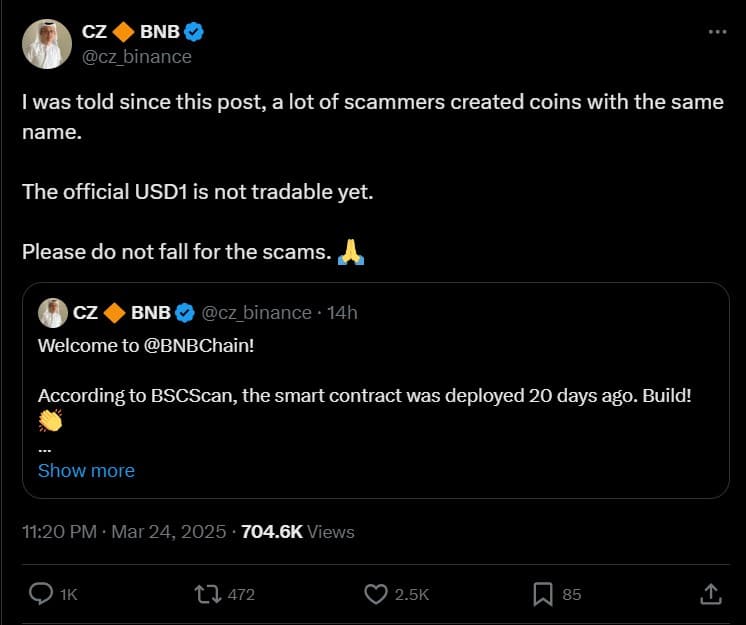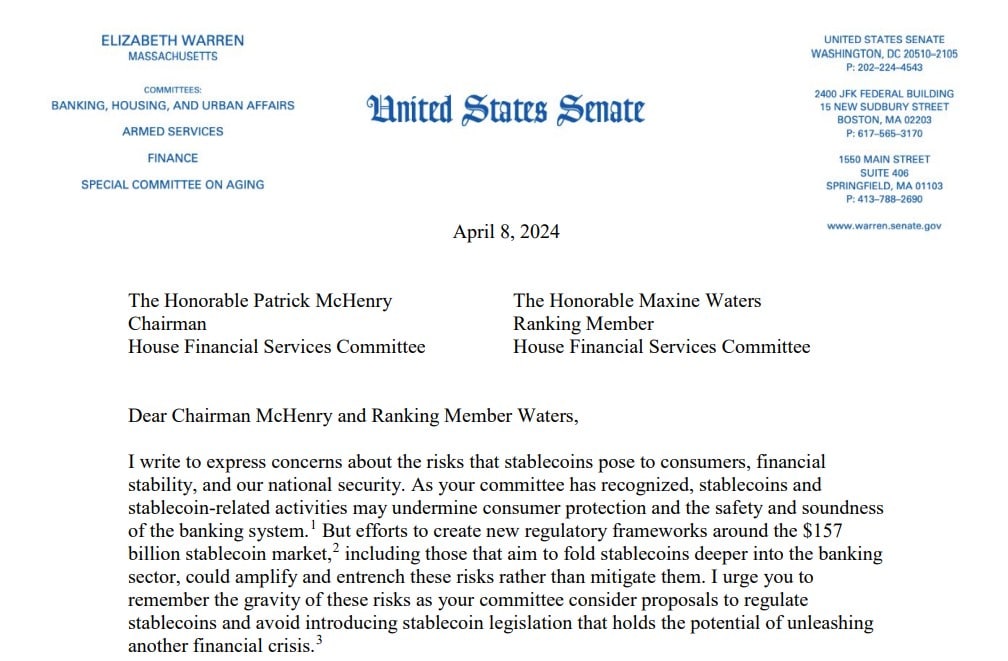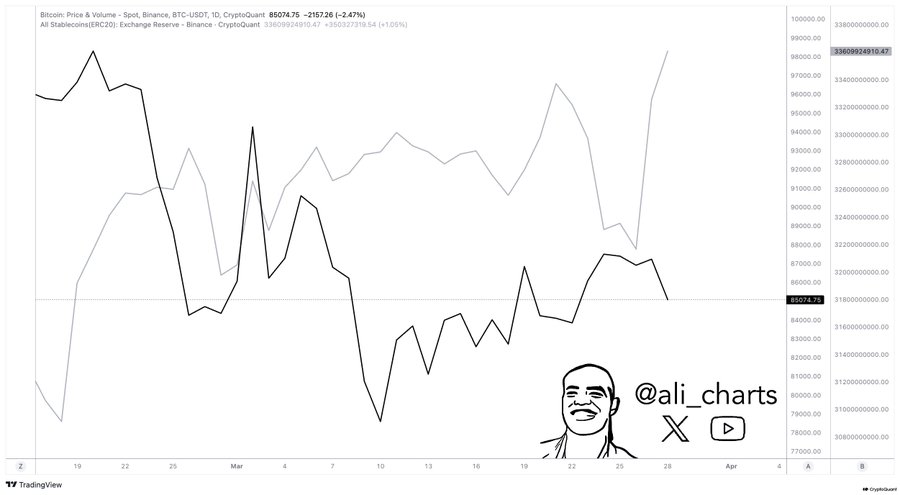USD1 – A controversial debut in the stablecoin market
WLFi, backed by Trump, recently launched USD1, a stablecoin pegged to the U.S Dollar. Backed by U.S government treasuries, dollar deposits, and other cash equivalents, USD1 will be deployed on the Ethereum and Binance Smart Chain networks.


Source: X
However, the launch has sparked controversy. Senators, led by Elizabeth Warren, have raised concerns over potential conflicts of interest due to Trump’s family holding significant equity in WLFi.
They have questioned the implications of a financial product tied to a sitting president, warning of risks to the financial system. The timing of USD1’s debut is under further scrutiny too, especially as the U.S Congress debates the GENIUS Act. This could grant more regulatory control over stablecoins from politically influential entities like the WLFi.
GENIUS Act and the regulatory landscape
The GENIUS Act is a proposed bill aimed at regulating stablecoins. It seeks to grant the Federal Reserve and OCC greater oversight over stablecoin issuers like USD1. If passed, it could introduce stricter compliance standards and monitoring practices.


Source: warren.senate.gov
Trump’s financial involvement and its implications
A key concern is President Donald Trump’s financial involvement in WLFi, the issuer of USD1. Critics argue that having a sitting president as a major stakeholder in a financial venture could compromise regulatory decisions, especially if independent agencies like the OCC and Federal Reserve are influenced by political pressure.
This unprecedented situation raises concerns about financial regulation integrity, reminiscent of the political pressures during the 2008 financial crisis.
If the GENIUS Act is passed, it could grant the Federal Reserve and OCC more control over stablecoins. However, the controversy surrounding USD1 highlights a broader issue – How to regulate stablecoins without stifling innovation. Regulators may need to enforce divestment or transparency from WLFi to maintain market confidence. Failing to address these conflicts could fuel market uncertainty.








